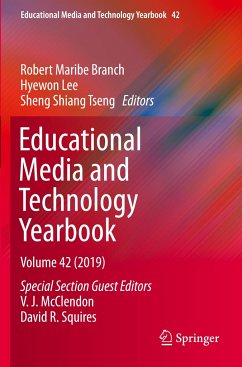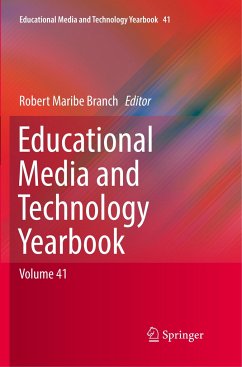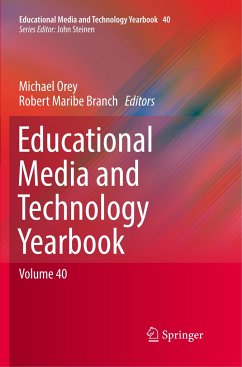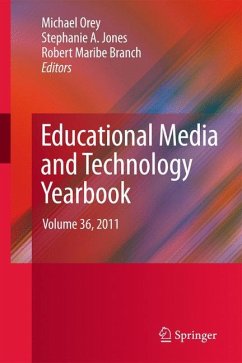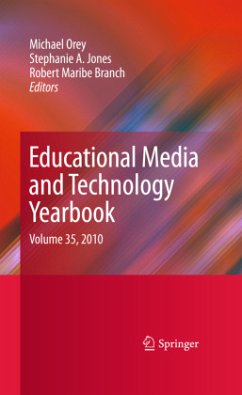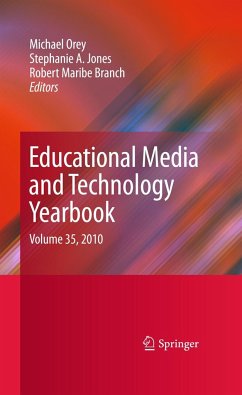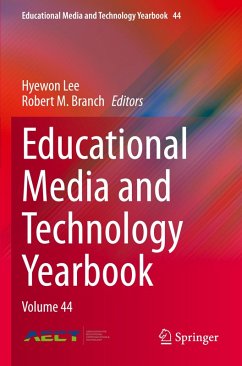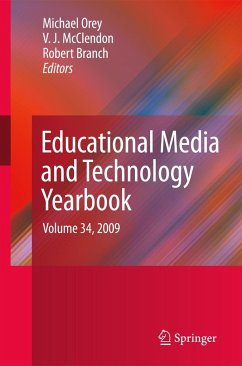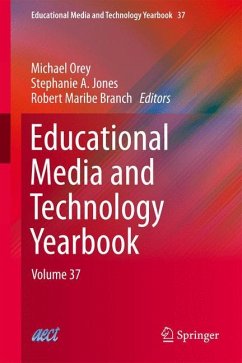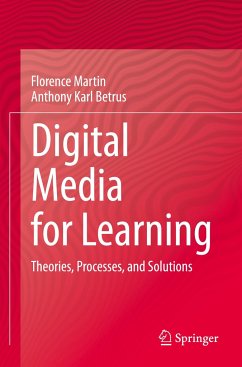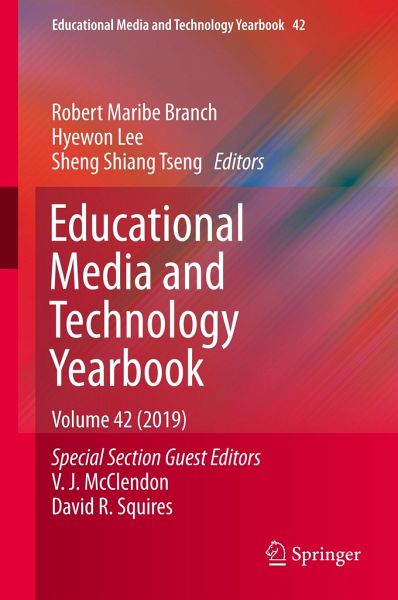
Educational Media and Technology Yearbook
Volume 42
Herausgegeben: Branch, Robert Maribe; Lee, Hyewon; Tseng, Sheng Shiang

PAYBACK Punkte
57 °P sammeln!
This is Volume 42 of the Educational Media and Technology Yearbook. For the past 40 years, our Yearbook has contributed to the field of Educational Technology in presenting contemporary topics, ideas, and developments regarding diverse technology tools for educational purposes. Our Yearbook has inspired researchers, practitioners, and teachers to consider how to develop technological designs and develop curricula and instruction integrating technology to enhance student learning, teach diverse populations across levels with effective technology integration, and apply technology in interactive ...
This is Volume 42 of the Educational Media and Technology Yearbook. For the past 40 years, our Yearbook has contributed to the field of Educational Technology in presenting contemporary topics, ideas, and developments regarding diverse technology tools for educational purposes. Our Yearbook has inspired researchers, practitioners, and teachers to consider how to develop technological designs and develop curricula and instruction integrating technology to enhance student learning, teach diverse populations across levels with effective technology integration, and apply technology in interactive ways to motivate students to engage in course content.
In addition, Volume 42 features the Virtual Reality (VR) and Augmented Reality (AR) research and educational use cases, organized and coordinated by Vivienne and David. This section provides evidence that the affordances of AR, VR, and mixed reality, defined as an immersive multi-platform experience reality (XR), havebegunto make indelible changes in teaching and learning in the United States. XR's recent developments stimulated the editors to propose a special edition to mark the interoperability of immersive technology to push the boundaries of human curiosity, creativity, and problem solving. After years of incremental development, XR has reached a critical level of investment, infrastructure, and emerging production. The chapters included in this section illustrate how XR can push user inquiry, engagement, learning, and interactivity to new levels within physical and digital contexts.
In addition, Volume 42 features the Virtual Reality (VR) and Augmented Reality (AR) research and educational use cases, organized and coordinated by Vivienne and David. This section provides evidence that the affordances of AR, VR, and mixed reality, defined as an immersive multi-platform experience reality (XR), havebegunto make indelible changes in teaching and learning in the United States. XR's recent developments stimulated the editors to propose a special edition to mark the interoperability of immersive technology to push the boundaries of human curiosity, creativity, and problem solving. After years of incremental development, XR has reached a critical level of investment, infrastructure, and emerging production. The chapters included in this section illustrate how XR can push user inquiry, engagement, learning, and interactivity to new levels within physical and digital contexts.



